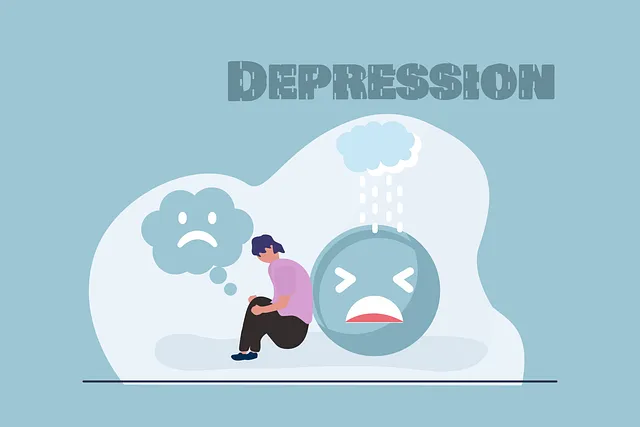Public awareness campaigns, like those at the Kaiser Permanente Mental Health Access Center in Arvada, are powerful tools for transforming societal attitudes towards mental health. Through storytelling, education, and accessible resources, these campaigns reduce stigma, normalize conversations about well-being, and encourage self-care practices. Reaching diverse communities, they foster resilience and supportive environments, improving public health outcomes. Arvada's initiatives showcase the success of community engagement in mental health, inspiring similar programs to combat stigma and promote holistic well-being, focusing on accessible services, comprehensive evaluation, and long-term behavioral changes.
Public awareness campaigns play a pivotal role in shaping societal perceptions and behaviors, especially regarding mental health. This article explores the evolution and impact of such initiatives, highlighting successful models like the Kaiser Permanente Mental Health Access Center. We delve into strategies employed by Arvada, a community that has effectively engaged its residents through innovative campaign development. Furthermore, it measures success through evaluation methods, emphasizing the importance of assessing the effectiveness of public mental health initiatives for continuous improvement.
- Understanding Public Awareness Campaigns: Their Role and Impact
- Kaiser Permanente Mental Health Access Center: A Model for Community Engagement
- Strategies for Effective Campaign Development: Arvada's Approach
- Measuring Success: Evaluating the Effectiveness of Public Mental Health Initiatives
Understanding Public Awareness Campaigns: Their Role and Impact

Public awareness campaigns play a pivotal role in shaping societal perceptions and behaviors, with significant impacts on various aspects of public health. At the Kaiser Permanente Mental Health Access Center Arvada, for instance, these campaigns have been instrumental in promoting mental well-being and encouraging individuals to seek help when needed. They serve as powerful tools to dispel stigma surrounding mental health issues and foster an environment where conversations about emotional healing processes are normalized.
Through creative storytelling, educational initiatives, and accessible resources, awareness campaigns inspire individuals to adopt self-care practices and develop effective stress management techniques. By reaching diverse audiences, these efforts ensure that people from all walks of life understand the importance of prioritizing their mental health, ultimately contributing to a more resilient and supportive community.
Kaiser Permanente Mental Health Access Center: A Model for Community Engagement

The Kaiser Permanente Mental Health Access Center in Arvada serves as a notable example of community engagement for mental health initiatives. This center has successfully addressed the challenge of mental illness stigma reduction within the local community. By offering accessible and comprehensive services, it fosters self-awareness exercises and mindfulness meditation practices that empower individuals to take charge of their mental well-being. The center’s approach focuses on creating a supportive environment where people from diverse backgrounds can openly discuss and manage their mental health concerns.
Through various programs and events, the Kaiser Permanente Mental Health Access Center encourages active participation from community members, breaking down barriers and promoting understanding. Their strategies have shown significant impacts, leading to increased awareness about mental illness and improved access to care in Arvada and surrounding areas. This model can inspire similar initiatives, demonstrating that community engagement is a powerful tool to combat mental health stigma and foster holistic well-being.
Strategies for Effective Campaign Development: Arvada's Approach

Arvada’s approach to public awareness campaigns for mental health emphasizes a multi-faceted strategy that seamlessly integrates various components for maximum impact. Their model begins with thorough research and community engagement, ensuring that the campaign resonates with the unique needs and cultural context of Arvada residents, particularly focusing on accessible mental health services like those offered at the Kaiser Permanente Mental Health Access Center.
This involves leveraging diverse communication channels, from traditional media to social media platforms, to disseminate information about mental well-being. The campaigns also prioritize education and coping skills development through initiatives such as workshops, webinars, and community gatherings that promote mindfulness meditation and other stress management techniques. By combining these tactics, Arvada seeks to foster a supportive environment where individuals feel empowered to seek help and support for their mental health.
Measuring Success: Evaluating the Effectiveness of Public Mental Health Initiatives

Evaluating the success of public mental health initiatives is a multifaceted process that goes beyond simple engagement numbers. Effective measurement requires looking at both short-term impacts and long-term behavioral changes. Organizations like the Kaiser Permanente Mental Health Access Center in Arvada employ robust evaluation frameworks to assess the reach, efficacy, and sustainability of their programs. This includes tracking participant satisfaction, exploring improvements in mental well-being, and measuring the adoption of healthy coping mechanisms such as Depression Prevention strategies or Trauma Support Services.
By integrating these evaluations into their approach, centers like Kaiser Permanente aim to not only reduce symptoms of existing mental health conditions but also promote Stress Reduction Methods that foster resilience among community members. This holistic evaluation ensures that initiatives are tailored to address prevalent mental health challenges, enhancing overall public wellbeing and creating a more supportive environment for all.
Public awareness campaigns, as demonstrated by initiatives like the Kaiser Permanente Mental Health Access Center in Arvada, play a pivotal role in fostering community engagement and enhancing mental health accessibility. By adopting effective strategies such as those outlined in this article, we can create impactful programs that lead to positive changes. Measuring success through evaluation ensures these campaigns remain responsive to community needs, ultimately revolutionizing mental healthcare access.




